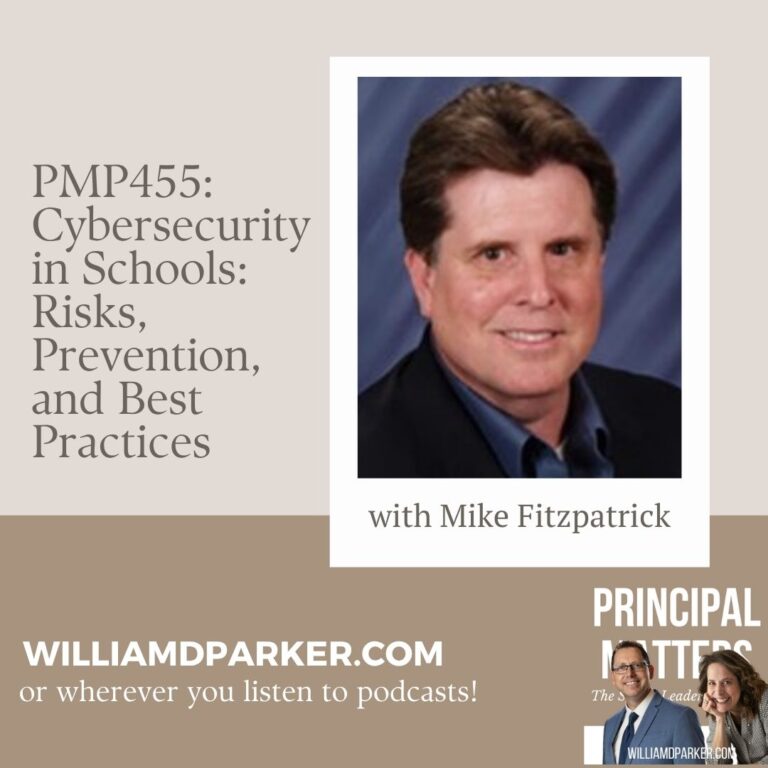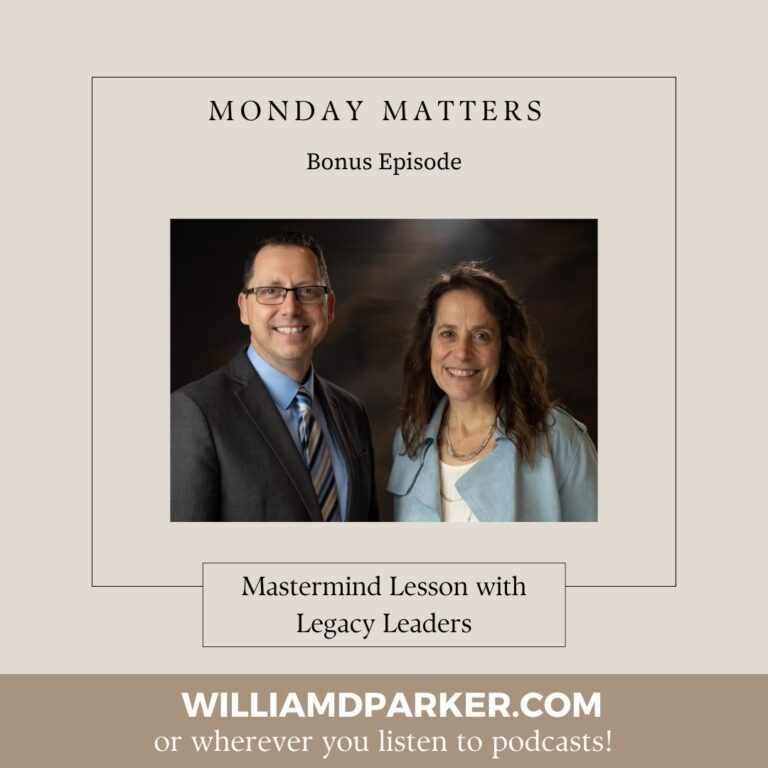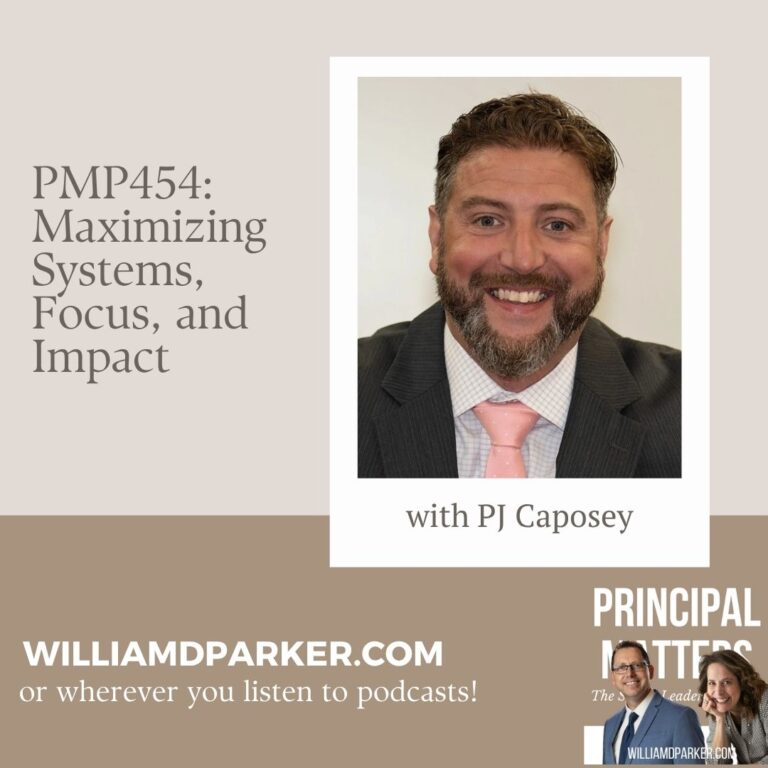The following is a Q & A between Mark Mambretti and me.
Mark Mambretti is principal of East Aurora Middle School, located just outside of Buffalo, New York; a 5-8 school of 600 students and 100 faculty/staff. This year, he was named the New York State Middle School Principal of the Year.
My goal in posting interviews with successful leaders like Mark is to inspire us to reflect on how our own choices, goals, and actions can affect our lives, our leadership, and our teams.
I must also give credit to John Lee Dumas whose great podcast interview questions I have modified for the Q & A’s I have with my guests.
Mark’s Bio:
While serving as principal of East Aurora Middle School, Mark Mamretti’s school was named a National Blue Ribbon School of Excellence by the US Department of Education, and he was named NYS Middle School Principal of the Year by the School Administrators Association of New York State (SAANYS) and the National Association of Secondary School Principals (NASSP).
Prior to this assignment, he served as the principal of three other schools, spanning the range of urban to suburban, and from private to parochial to public. He holds four masters degrees. In addition to his work as principal, he has served as an adjunct professor/lecturer at four local colleges/universities. He lives in Clarence, NY with his wife, Meghan and three young children.
WDP: Thanks so much for sharing with us Mark! Can you begin with a favorite success quote?
Mark: “The most necessary skill for success is knowing what to ignore.”
WDP: How have you use the idea contained in your quote to affect your school’s leadership?
Mark: The demands on a principal’s time are infinite. A principal cannot do everything that is expected of them and do it all with the quality that is demanded. But there’s certain liberation in realizing this because it doesn’t mean that principals can’t do a good job. Good work — a lot of good work — can happen!
But this is the case only if it’s done in the right order and with the right focus. The ability to sort, categorize, and prioritize ever-evolving issues (and to be in a constant cycle of doing so) is essential. It is knowing that all crises are not created equal. It is knowing which problems are, indeed problems. It is discerning which critics are trying to make you better by their critique and which are trying to tear you down with their criticism.
Mastering this allows a principal to tackle the right issues, in the right order, in the right way and at the right time.
I’d say that the converse of the quotation is also true: Not ignoring what shouldn’t be ignored is equally important. The key is to know the difference! What can I ignore? What can’t I ignore? What do I need to ignore…but just for now?
This quotation doesn’t just impact my in-building leadership. I’ve found that it is also very important on the personal level. Our job, by its nature, is never ‘done.’ There is always something else demanding our attention, something else sitting on our desk. But, without the ability to say “I’ve done enough for today,” life can quickly lose its balance and I cannot refocus, recharge and, most importantly, spend time with family and friends.
That is why I think principal ‘burn out’ is so high…when you care about your student’s success as much as most principals do, it is very difficult to walk away – even for an evening. But, unless you can do so, you’ll never be as effective as you can be.
WDP: Wow, that’s great insight. Seeing success usually comes after some failed attempts. Can you take us back to a failure or obstacle you overcame and how you did it?
Mark: In three of the four schools I was principal of, I was brought in as a ‘fixer’ – someone who was tasked with getting the school’s culture, climate and academic results back on the right track and in short order. This is not easy because, in many cases, I had good folks who were working hard and doing good work but, for whatever reason, they were not meeting with success.
I believe that you can become acclimated, accustomed, and even addicted both to success and to failure. Addiction experts say that when you want to break an old habit (or begin a new one) there are three traits which increase your chances of success: 1) Go big! 2) Go public! and 3) Go now!
The method I used was to set clear “non-negotiables” that became the identifiers of the school. These non-negotiables became the basis for any and all decisions we made and governed the interactions of all individuals (youth and adult) who walked in our doors:
They are:
1) This school will be a safe place (physically, but also academically, emotionally and socially).
2) This school will be a happy and healthy place (All will leave better than they came).
3) This school will be the region’s premier learning environment.
I have found that boiling down the essence of an organization’s purpose, clearly and ambitiously identifying a target, saying what will and will not be allowed as we work towards that target, and repeating it publically at every opportunity quickly builds identity and allows for focused decision-making.
WDP: I like your emphasis on focus. Can you give an example of something you have done that required risk but created great results?
Mark: I inherited a school faculty that was divided and dysfunctional. Everything was a struggle. I was a new principal with no history or credibility. On our first faculty development day, I rented buses and took the whole faculty bowling. No agenda, no facilitators, no speeches – just bowling. It was met with suspicion, raised eyebrows (and a few dirty looks).
It took a while to break the ice. But as they got into the games, something magical happened – teachers who hadn’t talked in years began sharing and laughing. Because of that day, a corner was turned and we were able to do more in terms of staff development than we would have in five years without the day.
WDP: Can you give an example of an “aha!” moment where you realized a key truth that you turned into a success?
Mark: It was the day I realized that a winning coach can’t necessarily play any position better than the player – and he definitely cannot play all of them better! Being ‘better’ is not where he earns his authority. He leads by setting the tone, identifying the mission, coordinating the movement, and providing the resources that allow for each player to reach his potential.
A-ha! What a liberating break-through! I don’t need to do it all! I don’t need to be the expert if 7th grade social studies – I have 7th grade social studies teacher for that. Same for 5th grade math. And for P.E. And music. And Spanish. In fact, if I have to do their job, one of us is unnecessary!
What I need to do is make sure they have the conditions, coordination, support and resources necessary to do their job well. If I focus on my job – and do it well – the teachers will be able to focus on their job – and do it well!
WDP: This next question always brings out some interesting responses. Have you had an “I’ve made it” moment?
Mark: In our business, which is more of an art than a science, we’re not trying to create a perfect product. There is no Superbowl for us to win. We’re trying to inform, educate, nurture and inspire a person.
It is a difficult, complex and ever-evolving task.
In addition, when done right, it is highly individualized. And, just as we figure it out, those students move on and a whole new class comes in!
I’m not sure anyone can ever get to a point when they say they’ve figured out how to do that – and do it well – for every one of their students. As such, I’m not sure I’ve ‘made it’, and I’m not sure I ever will. To be honest: I worry about educators who think they have.
My school has won the National Blue Ribbon from the US Department of Education. I’ve won “New York State Principal of the Year” and the SAANYS “Outstanding Achievement Award” NYS Region XII. I’ve been included in the “40 under 40 Individuals to Watch” list for Western New York. I am an adjunct professor. I present at workshops and conferences. I’m frequently interviewed by the media.
But what I’ve found is that none of this matters to the parents and students who are coming into my door for the first time. And it shouldn’t! Parents don’t care if you are running a great school. They care if you are running a great school for their child.
WDP: What was holding you back from seeing the high levels of success you have been experiencing for years now?
Mark: I’m not sure anything ‘held us back’ but it is evident that success takes time. I think that ‘high levels of success’ are the result of a vision and a process (and a few lucky breaks). I think too many people short-circuit their schools’ growth by trying to do everything right away. One of my favorite quotations is: “Hold the vision, trust the process.”
I believe that a school, like any organization is, at its heart, organic. A gardener will tell you that you can’t force or rush growth. You can’t make it happen. But you can nurture it. You can create the environment which allows it to flourish.
And that, I think is at the heart of a principal’s job. We can’t do everything that needs to be done to make a school successful. However, we can create an environment where everything that needs to happen is nurtured into happening.
I view my job description as: to coordinate, to facilitate, to make sure resources get where they need to go, to minimize distractions and then to get out of the way and let good teachers teach!”
WDP: What would you say is the best leadership advice you have ever received?
Mark: Treat people like they are people and treat good teachers like they are good teachers.
WDP: What is something that is working for you or your team right now?
Mark: We have a good team that has been working together for many years. I’ve worked hard to minimize disruption and turn-over. I’ve placed a priority on stability. Right now, this is working well for us.
While it can, at times, be a double-edged sword, there is something to be said for fraternity and comfort. Also, with the increased demands in terms of curriculum and mandates and the shrinking budgets, affecting both supplies and even the number of teachers, we are now pulling together in a bit of a ‘fox hole’ mentality. It’s not good for the long-term health of the team but, in the short term, it has forced us to work together, support each other and get creative.
WDP: Do you have a resource that you just love that you would recommend to other leaders?
Mark: I have found that the best — and often most neglected — resource is our peers. Due to the time demands and stressful nature of our jobs, we too often work in isolated silos. We often struggle to come up to answers to issues, problems and concerns when someone right down the street – doing the exact same job – is struggling with the same issue. My recommendation is to make sure you are in regular contact with peers both inside and outside your school district. This will not only help in the area of identifying best practice but also for fraternal support.
WDP: If you could speak to the 20 year-old version of yourself, what advice would you give him or her?
Mark: Hold the vision, trust the process.
WDP: Do you have any final thoughts you want to share?
MarK: “In a completely rational society, the best of us would be educators and the rest of us would have to settle for something else.” – Lee Iacocca
WDP: Mark, I am so motivated by your responses. Thanks for a the fabulous feedback and insight!
Now It’s Your Turn:
I like Mark’s “non-negotiables”: a school that is safe, healthy, and conducive for learning. What are some of your non-negotiables for your school or organization? Share with the rest of us!
Subscribe For More
Want to read more interviews or insights on school leadership? Subscribe to receive my weekly posts from WilliamDParker.com!


